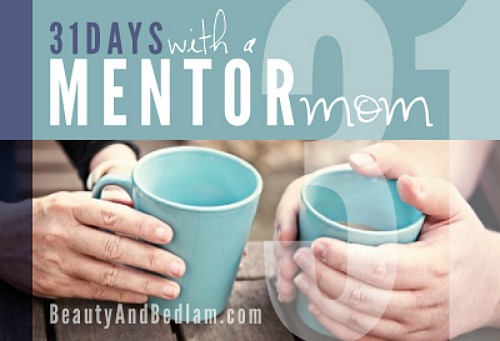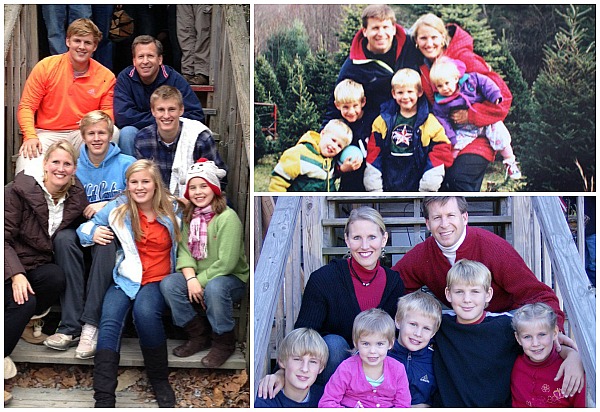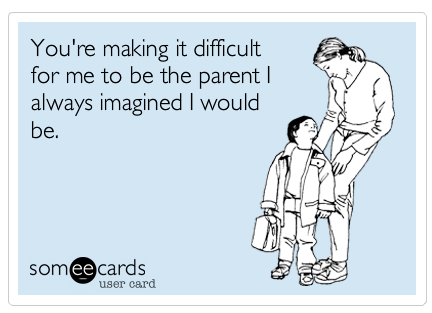It took me years, but I’m beginning to understand the phrase, “The older I get, the less I know.”
Right out of college, I was hired as a high school youth director (pastor) and let me tell you, I was “good.” I knew what I was doing. I mean, I took four years of university classes on how to connect and mentor teens and I specifically categorized tips to use for all my talks and suggestions to tell those struggling parents, so that gives me all the wisdom in the world, right?.
I then carried that same knowledge and experience into my early years of parenting. Shouldn’t an expensive degrees in Christian Education, Youth Ministry and Psychology pave the parenting way?
With four children in five years, our little stair steps kiddos were the “picture perfect poster children” of my “good parenting skills.”
(Insert rip roaring belly laughter now at the extreme irony of all my “knowledge.”)
Oh my, what was I thinking?
It soon became obvious that I had no idea whose kids these were. Certainly not the ones on paper. They developed their own strong wills and sets of lungs. Their complacent personalities went out the window and all my book smarts didn’t do me a lick of good.
How could they all be so different? What worked with one, didn’t work with the other. Were there even books that taught me how to “work” them?
That was nearly 20 years ago. Those four stair steps leaped into teenagers. Our boy men are 19, 18, 16, and our daughters are 14 and 10, and I am one exhausted mother, but I am present, and I don’t mean in just the physical way. I mean present emotionally, even when they don’t want me to be, but it’s amazing how slowly but surely, they welcome the input.
There are still days when I want to wake up, tell them I love them more than anything in the whole wide world and let that be enough.
Some days, that is all one can muster, but words can’t be enough everyday. It’s time consuming and draining to be available and present on a regular basis, but what a privilege.
There’s another thing I didn’t realize when my children were young. I really thought that if I “dotted my i’s and crossed the t’s” on my mothering chart, my kids would be these wonderfully compliant children voicing “Yes, ma’am” with a happy heart each and every time, and for the first few years, I thought it worked.
Yes, I had the mothering thing down.
But then one day I yelled.
I mean really yelled. Not just raise my voice a little like on the playground kind of yell, but I totally lost my cool. I was beyond angry at their choices, and it shook me to the core because everything I thought I knew when I was a youth director, including the fact that I would never yell at my children ever, flew out the window.
I didn’t have an answer. In the midst of my frustration, I blew it. I didn’t know how to handle the situation and for the first time I wondered how I could be SO incredibly frustrated, angry, and ticked at a child and yet love them so much at the same time.
Afterwards, I knew what I had to do.
I went to him, looked him in the eyes, grabbed him in a bear hug and uttered, “I’m so sorry. I’m not always going to get this mom thing right and this time I really messed up. Will you accept my apology?”
It’s OK to admit you don’t have the answers. It’s definitely not a sign of weakness. It takes a strong woman to admit that and honestly, there’s such freedom to admit, “I don’t have a clue what I am doing right now. ”
It’s OK to reach out for help and surround yourself with wise women who’ve gone before you.
They will tell you.
Do you understand how critical it is for your children to really hear you admit when you are wrong or that you don’t always get it right the first time?
They need to understand that you mean it in a deep down, heart felt way.
For many, that is a scar that still wounds, even into adulthood. They never heard their parents tell them they were sorry or admit they were wrong.
I’ve addressed, “The Five Languages of an Apology” in a past post and highly recommend that you read it. It’s revolutionary.
As parents, we mess up. We make mistakes. We fail and if we pretend that we don’t, we do our children a huge disservice.
Cultivating a heart of forgiveness in our children begins with the modeling that occurs in the home, and it’s an incredibly important step in fully teaching our children to apologize.
(You can read about some of my creative discipline techniques in that post, and it still works wonders.)

As I’ve grown in my mothering, I’ve realized just how much I don’t know, and it’s OK to admit that to my kids. It took all my “book sense” to fly right out the window before the Lord had me right where He wanted me – broken, humbled and realizing that He is the only one who can be the perfect parent.
When I am at that point, divine intervention often occurrs in the midst of those mothering moments when I need His wisdom the most. And trust me, I beg Him for wisdom repeatedly.
I’m so glad that He knows our children better than we ever will. He shows up and gives us exactly what we need when we are available and teachable.
All we have to do is ask.

Are you following along with my Mentor Mom series? You can find them here.



One year into a separation / divorce, and I loved reading “It’s time consuming and draining to be available and present on a regular basis, but what a privilege.” And, the apology… Oh, I have been there. I cannot wait to meet my adult daughter but for now, I love my 10 year old and try to cherish all of her bits and pieces – and still try to instill some of the life lessons I think she needs. Mom, I love you – best words ever.
Sheri – I can’t even imagine how hard your last year has been. Keep pressing on. It’s tiring, draining, exhausting, but you cherishing that blessing will reap such a amazing rewards. 🙂
I want to thank you, Jen, for this series on parenting. Although my children are grown, married, and have children of their own, I am finding your series so helpful in many ways. One of those ways is to forgive myself for those times I wasn’t the completely perfect parent. Another way your series has helped is to know it is never too late to learn new parenting skills and to be able to utilize them when I am in charge of any one of my 14 grandchildren. God created them all so wonderfully different. Their ages range from 14 years down to 10 months old, so they can’t help but take different parenting skills just because of their maturity levels.
Thank you again for sharing the wisdom God has blessed you with
My three boys are 14 and 11 (twins). So it’s comforting to read your posts about raising teenage boys. And, I totally can relate about the yelling every now and then. One of my twins has special needs (Asperger’s and OCD). Homework takes double time because it takes him longer to do than his “typical” twin brother. Everything has to be read to him and broken down in easy, simple steps. I try to be as patient as I can. But it’s especially hard not to lose my cool when I’m already exhausted from a full day of subbing as a teaching assistant working with other special needs school age children. Throw in a week of PMS to the mix … well, you get the idea. My kids hear “sorry” a lot during those weeks. Tonight I had to have my husband take over with part of homework, but that’s not always possible if he works late. I wouldn’t change who my boys are (Asperger’s and all), but someone should have told me how hard this parenting thing really was.